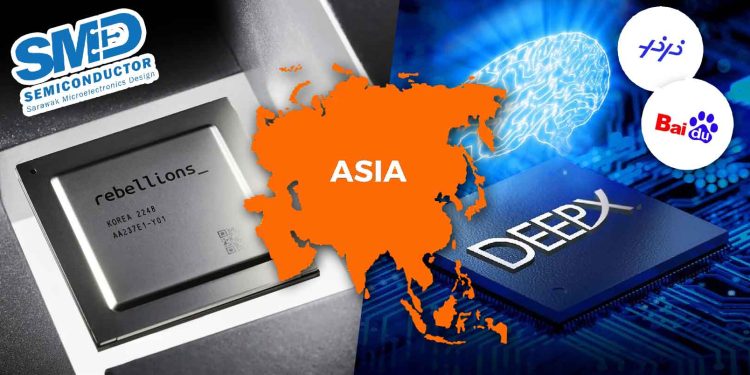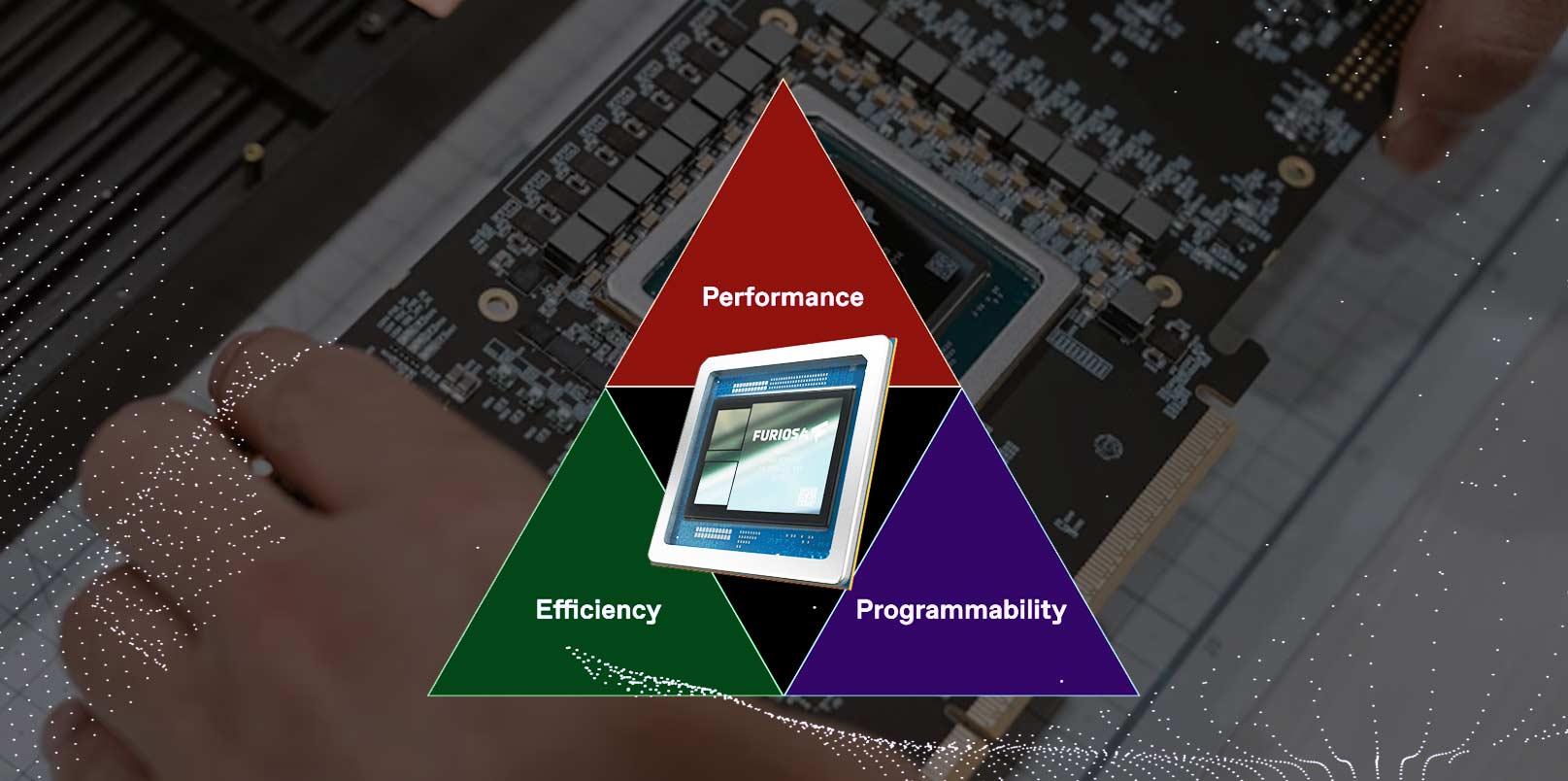Korea’s AI semiconductor startups are stepping into new territory as DeepX and Rebellions announce major cross-border deals in China and Southeast Asia. These agreements mark a turning point for Korea’s fabless NPU innovators, showing their growing role in the global AI infrastructure race and signaling how Korean chips are moving beyond domestic labs into real industrial applications.
Korean AI Startups Secure Supply and Partnership Deals Across Asia
Two of Korea’s leading NPU (Neural Processing Unit) fabless startups—DeepX and Rebellions—are accelerating their expansion into Asia.
DeepX has previously signed a supply agreement with China’s Baidu, while Rebellions has entered a partnership MOU with the Sarawak State Government of Malaysia to collaborate on semiconductor and data-center projects.
According to industry reports, DeepX will provide its DX-M1 AI semiconductor to 20 client companies within Baidu’s AI development framework ecosystem. The initial shipment is small and designed for pilot testing, but both companies plan to continue co-development for integration into large-scale commercial products.
DeepX Strengthens Footprint Through Baidu Partnership
DeepX’s DX-M1 will be used by companies developing AI products on Baidu’s PaddlePaddle framework, which supports smart-city infrastructure, autonomous driving, image recognition, and speech processing.
Before the supply deal, Baidu verified the DX-M1 in its AI and robotics models and confirmed that its performance and accuracy met industrial standards.
Baidu will also cooperate with DeepX on optimizing and distributing a new Vision-AI-specific server chip slated for commercial production within this year. The chip will serve Baidu Cloud clients and represents a key step in Korea’s entry into China’s fast-evolving AI hardware ecosystem.
Additionally, discussions are under way regarding DeepX’s DX-M2, which is scheduled for mass production using Samsung Foundry’s advanced 2-nanometer process—a sign that Korea’s domestic semiconductor supply chain is tightly linking design innovation with world-class manufacturing.
Rebellions Partners with Malaysia to Enter ASEAN Data Center Market
Meanwhile, Rebellions recently signed a memorandum of understanding with SMD Semiconductor, a design house under Malaysia’s Sarawak State Government, to develop local NPU projects and establish data-center infrastructure.
Sarawak possesses abundant natural gas and renewable-energy resources such as hydropower and solar power, positioning it as an attractive hub for sustainable data-center growth. Leveraging this partnership, Rebellions plans to build a regional semiconductor supply chain and target the broader Southeast Asian data-center market.
Chairman Wan Rizozman of SMD Semiconductor said,
“Through cooperation with Rebellions, we will jointly create a new direction for Malaysia’s semiconductor industry.”
At the same time, Rebellions CEO Park Sung-hyun noted,
“Malaysia is a strategic base for Southeast Asia’s AI industry, where global companies such as Google and Oracle are focusing their efforts. This partnership will help us achieve tangible results in the regional market.”
Korea’s AI Semiconductor Strategy Expands Regionally
Following the success of DeepX and Rebellions in supporting Korea’s AI sovereignty, these developments further illustrate that Korean fabless startups have now evolved from domestic innovators to regional technology partners.
DeepX’s entry into China’s AI chip ecosystem through Baidu, along with Rebellions’ expansion into Malaysia’s green-energy data-center sector reflect the dual direction of Korea’s broader semiconductor strategy—linking advanced AI design with cross-border industrial collaboration.
The partnerships also demonstrate Korea’s ability to move beyond domestic AI chip sovereignty, positioning its startups to export both products and intellectual property while collaborating with leading players across Asia. This reinforces Korea’s growing role as a bridge between global semiconductor powers like the United States and China.
As local fabrication and design capabilities converge around Samsung Foundry’s 2-nm process, Korea’s fabless ecosystem is gaining stronger footing in next-generation AI hardware production.
Next Step in AI Hardware Leadership
Finally, the momentum of DeepX and Rebellions highlights Korea’s growing influence in the global AI semiconductor value chain. By aligning with Baidu’s cloud infrastructure and Malaysia’s renewable-powered data-center ecosystem, these startups are bridging Korean innovation with Asia’s industrial demand.
Their progress suggests that Korea’s AI chip ecosystem is shifting from national competitiveness to regional leadership—a crucial step as the world races to define the next era of intelligent computing and sustainable data infrastructure.
🤝 Looking to connect with verified Korean companies building globally?
Explore curated company profiles and request direct introductions through beSUCCESS Connect.
– Stay Ahead in Korea’s Startup Scene –
Get real-time insights, funding updates, and policy shifts shaping Korea’s innovation ecosystem.
➡️ Follow KoreaTechDesk on LinkedIn, X (Twitter), Threads, Bluesky, Telegram, Facebook, and WhatsApp Channel.






